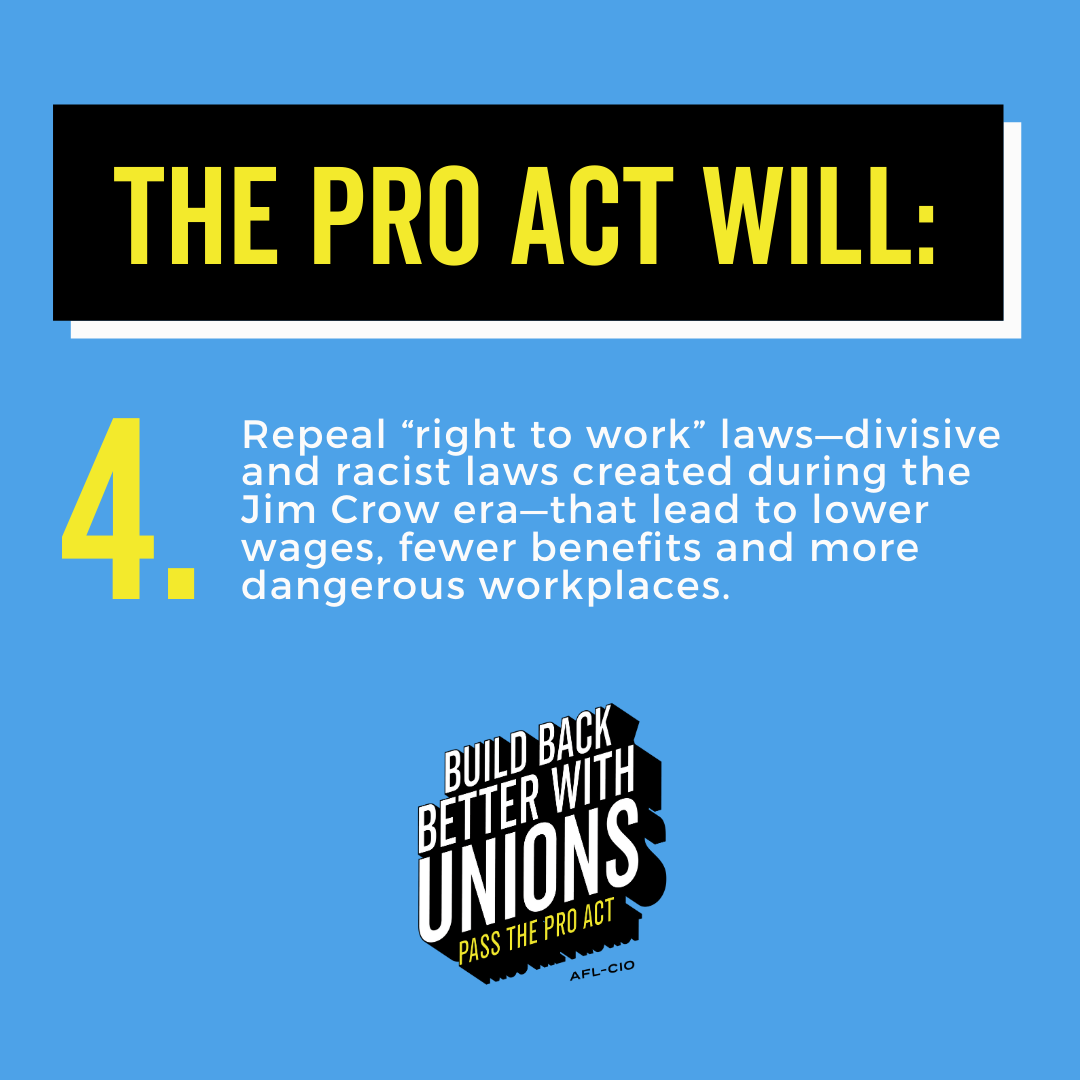The purposes of the Protecting the Right to Organize (PRO) Act are simple:
Ensure workers can push for the changes we want to see at our jobs without fear of retaliation and strengthen workers’ right to form a union and negotiate for those changes if we so choose.
Currently, there are no penalties for employers who illegally retaliate against or fire workers for collective action. The bill is necessary because our woefully outdated labor laws are no longer effective as a means for working people to have our voices heard.
The PRO Act Helps Employees Advocate for Improvements at Work by:






